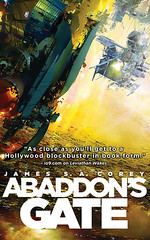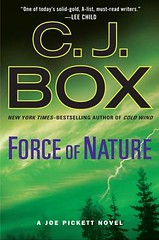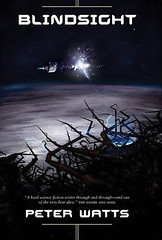“With the postwar housing boom, the fabulous Klamath and Menominee forests were especially coveted. It is no coincidence that those tribes were among the first five slated for termination.”
— Louise Erdrich, The Night Watchman
 The Night Watchman
The Night Watchman
by Louise Erdrich![]()
Wow. I’ve read one other Louise Erdrich novel, “LaRose.” Upon deciding to rate “The Night Watchman” at 4.5 stars, I went back to see what I’d rated “LaRose.” Well, what do you know? 4.5 stars. Of the 737 books I’ve read and reviewed here and on Goodreads, I’ve 5-starred just four. From me, 4.5 is as good as it gets.
“LaRose” and “The Night Watchman” have much in common. Here are excerpts from my review of Erdrich’s earlier novel:
It may have helped that I lived in Northeastern Montana for a year, just outside the Fort Peck Indian Reservation, working with a mix of white and Native American adults. I easily fell into the vibe of the novel’s North Dakota setting. … What made me feel most at home, though, were Erdrich’s vividly drawn and sympathetic characters. I’m generally cold to magic realism in fiction, but so much of Native American spirituality seems, to an outsider like me, both magical and real, and in the context of this novel’s story right, proper, and essential … especially in telling the story of LaRose and the generations of LaRoses who came before him.
Commonalities, yes. Different reservation, different characters, and this time a somewhat more political theme, grounded in history and well-researched. That Erdrich has a personal connection to the actual men and women who organized against and fought the threat of tribal termination in the 1950s lends intensity to the story. The setting, though removed in place and time, feels immediate and real.
As with “LaRose,” the spirituality of this novel’s characters feels at once both magical and everyday. May I also say there’s a strong YA feel to this novel (“LaRose” as well), in that many of the characters are young adults, experiencing things for the first time, Patrice in particular.
Tension abounds in “The Night Watchman,” not just over the looming threat from the Mormon senator determined to cancel treaties with Native Americans, relocate them to cities, and take their land, but in the subplots: the threatening drunkard father, Patrice’s journey to adulthood, Wood Mountain’s boxing matches, Patrice’s descent into and narrow escape from Minneapolis’ bizarre criminal underworld, Vera’s tragic story, Stack Barnes’ single-minded pursuit of love, Millie’s awakening … all leavened, as the publisher’s blurb has it, with compassion, wit, and intelligence.
As with “LaRose,” I initially asked myself if I’d really be interested in a novel about the lives and history of Native Americans. Two pages in, the answer was a definite yes. “The Night Watchman” is a kind of Great American Novel, and it’s no wonder Louise Erdrich won the Pulitzer Prize for it.
“I keep warning you. Doors and corners, kid. That’s where they get you. Humans are too fucking stupid to listen.”
— James S.A. Corey, Abaddon’s Gate
 Abaddon’s Gate (The Expanse #3)
Abaddon’s Gate (The Expanse #3)
by James S.A. Corey![]()
Originally read in July 2019. Now re-reading the first eight novels of The Expanse series with the goal of finishing before the ninth novel, “Leviathan Falls,” comes out in November 2021.
I have nothing to add to my original review, so will repeat it here:
I read the first novel in the Expanse series, ‘Leviathan’s Wake,’ a year or two before the SyFy Channel’s TV adaption came out. I loved the book, which was old-fashioned space opera on a solar system-wide scale, with plausible civilization- and technology-building. When I started watching “The Expanse” on TV, I immediately realized it was the best televised science fiction series I’d ever seen, and surprisingly faithful to the one book I’d read.
I’ve watched all three seasons [there are now five — Paul] of “The Expanse” not once but twice, and have now finished the second and third books in the series, “Caliban’s War” and “Abaddon’s Gate,” which spawned the second and third seasons of the TV series. I downloaded the fourth novel, “Cibola Burn,” to my Kindle last night and cannot wait to embark on the next chapter of the saga, which promises to move beyond the solar system (and which, I was happy to learn, will come back to TV in a new season, now on Amazon).
This won’t be a detailed or long review of “Abaddon’s Gate.” I’ll just say that’s it’s exceptionally well-written and that the characters have more depth and complexity than those in many a mainstream novel. In fact it’s so good I’m giving it a higher rating than I gave the first two novels … how often does that ever happen with sequels? I will also say that there are substantial differences between the novels and the necessarily pared-down, simplified TV series, enough so that readers won’t feel they’re digesting the same stories twice. The novels and the TV series complement each other, with the novels providing depth and characterization you wish the TV series could have offered.
I will note here, for readers who might be confused by references to “we” in the author’s afterword, that James S.A. Corey is a collective pseudonym for the novels’ two authors, Daniel Abraham and Ty Franck.
“Joe instantly lost hearing in his right ear, and it was replaced by a dull roar.”
— C.J. Box, Force Of Nature
 Force Of Nature (Joe Pickett #12)
Force Of Nature (Joe Pickett #12)
by C.J. Box![]()
I’m reading C.J. Box’s Joe Pickett novels, which are set in a mountainous, sparsely-populated corner of Wyoming and feature a fish & game warden who finds himself and his family threatened by bad men intent on raping the West. They’re great reads, engrossing and impossible to put down, and I’m devouring the series.
It can be a struggle to write insightful, fresh reviews of individual novels in a series. I’ll start by repeating what I said about “Open Season,” the first Joe Pickett novel:
As much as I enjoy reading Lee Childs’ Jack Reacher stories, Jack is a superhero, a figure of fantasy. When Jack Reacher gets even, people die … but not before a righteous ass-kicking. While C.J. Box brings on Reacheresque tension and villainy, when it comes to his human and relatable hero Joe Pickett, it’s more a matter of luck. Joe prevails, a believable form of getting even. But don’t worry. Asses do get kicked, in satisfying ways. I really like this Pickett guy. He makes mistakes, and plenty of them. He worries about money. He trusts people he shouldn’t. He’s a regular Joe. I really like the depictions of Wyoming, a state I lived in as a teenager and remember fondly. Joe, at least in this first novel, has an almost-too-perfect family, but there are tensions, and I sense troubled teenage years ahead for his daughter Sheridan. Granted that everything in this novel is fiction, it feels real and true.
“Force of Nature” is one of the more gripping episodes in this outstanding series, providing history and background on Joe Pickett’s outlaw friend Nate Romanowski, along with a semi-convincing explanation of the reasons Nate lives off the grid and what he’s running from. Semi-convincing, that is, in that I didn’t totally understand why what happened in Afghanistan was so devastating to Nate, but convinced enough that I eagerly kept reading to the end. “Force of Nature” is more Nate’s novel than Joe’s, and the roles of Joe’s family, so central to previous stories, are incidental to this one.
As I continue reading the Joe Pickett novels, I’m disturbed by increasing hints of a “patriot militia” worldview on the part of the author, and hope Mr. Box can keep it contained … so far, my enjoyment of these novels remains undiminished, and I dearly hope it stays that way.
“How do you say ‘We come in peace’ when the very words are an act of war?”
— Peter Watts, Blindsight
 Blindsight (Firefall #1)
Blindsight (Firefall #1)
by Peter Watts![]()
I’m a sucker for first contact science fiction, and “Blindsight” held a lot of promise. I’ve long thought that if we ever encounter extra-solar alien life, we may not only have a hard time comprehending it, we may even not be able to see it. It may be so beyond our ability to grasp our eyes will slide off it.
Such is the case with the alien (aliens?) a small crew of enhanced and modified humans are sent to contact and assess, aliens who inhabit a magnetic energy cage orbiting a gas giant planet that has somehow arrived at the outer edge and somewhat off the elliptic of the Solar system, where it seems to be actively hiding from humanity. Lots of promise.
The humans, though, are almost as alien as the aliens. The narrator has half a brain and zero empathy; another has a communal intelligence; the officer in charge is a vampire (not at all like the hybrid human ones on Buffy), and … you know what? Who cares? I couldn’t relate to any of them, and during the dislikeable empathy-less observer’s interminable interior ruminations on how humans perceive reality, I started flipping pages, looking for something external to happen.
That’s not fair, because plenty does happen, but Watts does such a great job conveying the incomprehensible nature of the alien habitation and its inhabitants, neither the fictional crew of the discovery ship nor the flesh-and-blood readers of this book ever get a clear picture of what anything looks like, what it does, or what it’s for … except that it’s all pretty scary.
I was hoping Watts would do a better job describing the human discovery crew and their ship, and he tries, but the pictures I formed of the interior of the ship, with its zero-G spine, rotating drum, and the tent-like structures the crew inhabit kept slipping away from me. The human crew? I never developed mental images of them.
If you can’t even relate to the humans in a science fiction story, what can you relate to? Sure, the idea that we may encounter a wholly alien intelligence some day is intriguing, but at least in my case it’s not enough to carry me through a long novel composed mostly of the interior dialog of a shell of a man the author doesn’t want me to like.
A side note: Liu Cixin’s epic SF novel “The Three-Body Problem” describes humanity’s first contact with an equally incomprehensible alien civilization. I thought of it when I started writing this review, wondering why I liked that novel so much when this one left me cold. The answer came right away: Liu Cixin’s human characters are well drawn and relatable, so different from the humans of “Blindsight.”
“Where do you look for someone who’s never really there?
Always on a staircase but never on a stair.”
— Maureen Johnson, The Vanishing Stair
 The Vanishing Stair (Truly Devious, #2)
The Vanishing Stair (Truly Devious, #2)
by Maureen Johnson![]()
“The Vanishing Stair” was my book club’s selection for Aug 2021. I recommended young adult mysteries as the category and the group asked me to list five selections to choose from. I included this one, not realizing it was part of a series.
I’ve read some very good YA, entertaining and mind-expanding for young and adult readers alike. “The Vanishing Stair” is so-so YA, and I’m self-conscious about having recommended it to my adult book club. At the meeting, I’m certain to be called on to defend my love of YA. I should have recommended YA novels I know to be first-rate — something by Paolo Bacigalupi, Philip Pullman, or John Green — and not taken a gamble on titles and authors I couldn’t vouch for.
[Turns out the group loved the book, so much so that most members went on to read the entire trilogy on their own — Paul]
Skipping over most of my problems with this repetitive tale, I’ll go straight to my main objection: we never learn what became of Alice. Is Maureen Johnson saving the reveal for the next installment in the Truly Devious series? In the last third of “The Vanishing Stair” she makes Alice’s fate such a major point it’s simply flabbergasting she’d leave us hanging, but that’s exactly what she does. I’m so angry with her I’m going to spoil everything by solving it myself: Alice is Professor Fenton. Obviously. Has to be. And Hunter’s going to get the ten million, with Stevie’s help.
A quarter of the way in Johnson introduces a nonbinary character, Vi, obviously female but whom everyone refers to with plural pronouns (them/they). My reactionary streak shows every time I encounter this. Every other character in the story is a he or a she — it’s just Vi who’s a they. I respect a person’s right to identify as nonbinary, neither a him nor a her, and wish them luck. But there has to be a better way to refer to singular people who make that choice than with plural pronouns. I suppose I can get used to it in casual speech, but I always think of writing first, of making things clear to readers.
If I wrote fiction, would I create a nonbinary character? Yes, if the character’s gender neutrality added something to the story (and even then, I’d find a way to write around the pronouns before resorting to “them/they”). Vi adds nothing to “The Vanishing Stair.” She’s a background character, there only to rub our noses in the singular they, and I say fuck that. You wouldn’t see this sort of shit in a Joe Pickett novel.
“Are you still there, Axl?”
“Still here, princess.”
— Kazuo Ishiguro, The Buried Giant
 The Buried Giant
The Buried Giant
by Kazuo Ishiguro![]()
Three stars for being written by Kazuo Ishiguro; one for enjoyment. My overall rating splits the difference.
Another reader offers this two-sentence review:
“Like Ishiguro’s other books, this is a deceptively simple story with a great weight of meaning below the surface. Unlike Ishiguro’s other books, I was bored shitless while reading it.”
I haven’t much to add. Maybe this: Zeno’s dichotomy paradox, the notion that you never really arrive at point B from point A — that at first you’re halfway there, then halfway through the remaining half, then halfway through that, etc — gets a thorough workout in “The Buried Giant.”
As to the great weight of meaning, I too sensed it, but could never put a shape to it. Axl and Beatrice are still confused at the end, the mist still upon them, perhaps lifting and perhaps not. What meaning am I to take from that? I picture them still, decades later, wandering the countryside, endlessly talking.
After wading through this long, tedious journey — always at some halfway point to understanding Ishiguro’s point, never getting there — I feel the mist upon me too.